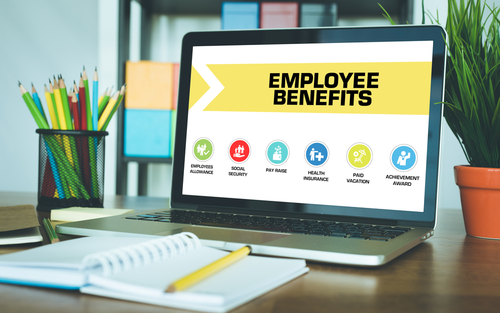During an economic downturn, job hunters usually search for the highest-paying position, but when deciding between offers with comparable pay, they might overlook salary and choose the role with the best benefits.
The full range of benefits—health insurance, retirement plans, career advancement, and parental leave, among others—may be of the utmost importance. Do these perks matter more than salary, though? For some employees, they might.
It’s Not All About Salary
The workplace has had its ups and downs over the last few years. Companies that transitioned to remote work during the pandemic have met swift opposition to return-to-office policies. The talent pool has also heavily scrutinized organizations’ sustainability and diversity initiatives—the less progress made, the fewer chances for hiring and retention.
Meanwhile, inflation and rising operational expenses have forced many corporations to cut costs and lay off thousands. However, that’s not to say pay always prevails during a financial crisis. In a recent Washington Post-Ipsos survey, 51% of American workers feel salary and workplace culture are equally important.
One’s decision to choose benefits over pay has different implications. For instance, a high salary allows for greater purchasing power. As the cost of living increases exponentially, money helps pay bills, rent, groceries, and taxes. Conversely, an excellent benefits package may improve one’s lifestyle in ways money can’t buy.
Employees could also find themselves at different points in their careers. Job perks like retirement and medical insurance may matter more than salary for senior-level employees.
5 Workplace Perks That Matter Most
The labor market is ever-evolving, and as employee needs change, so must benefit packages. Businesses must deliver more than a paycheck to attract and retain top talent, such as these five perks:
1. Health Insurance
Healthcare costs are astronomical in the United States. Medical expenses reached $4.3 trillion in 2021—about $12,900 per American. The numbers were nearly twice as high as other wealthy nations.
Therefore, employees take excellent medical, dental, vision, and mental health insurance into consideration when accepting a job offer, especially after COVID-19. Gym memberships, nutritional programs, and fertility and adoption benefits have also become increasingly popular among employees as more people take accountability for their health.
2. Environmental Sustainability
Amid rising climate change concerns, talented workers are most interested in a company’s eco-friendliness. Is there a sustainability plan in place? How do they reduce office pollution?
Companies might install low-flow faucets and toilets or motion-sensor LED lights to conserve resources. Some might also organize community volunteer events or donate to an environmental cause.
Helping employees make sustainable changes also matters. Nearly 62% of millennial workers would recycle more often if their business leaders provided more bins around the workplace.
3. Professional Development
Many people upskilled during the pandemic to learn the latest industry trends. As such, employees have shown an increasing demand for professional development and career advancement.
Companies offering ongoing training, mentorship programs, workshops, speaking engagements, and coaching appeal to employees. New skills and extensive industry knowledge often lead to a higher salary anyway.
An active willingness to learn and grow among employees benefits businesses, too. For instance, performance was up 20% after Time Etc. replaced managers with coaches and invested in monthly courses and reading materials.
4. Retirement Plans
Few employees are ready to leave the workforce. According to GOBankingRates, 36% of Americans have less than $10,000 in retirement savings, while 27% have just under $50,000. Most full-time employees expect their businesses to offer retirement plans, which are most appealing when companies match contributions.
Considering many people’s unease about financial security, offering excellent retirement benefits like a 401(k) can attract new talent and prevent turnover. As of 2023, Americans can contribute $22,500 to their 401(k) accounts and $6,500 in individual retirement account (IRA) contributions.
5. Corporate Culture
Most employees want a friendly and cohesive workplace culture resulting from excellent leadership. About 56% of hybrid workers seek an empathetic leader, and nearly 50% of remote workers and 44% of in-office employees want the same.
Positive leaders encourage collaboration among team members and foster a safe space for idea-sharing and feedback. They also empower employees to seek career growth and uphold diversity and inclusion. Bosses should respect work/life balance and allow employees flexibility for personal needs.
Should You Take a Higher Pay Over Better Benefits?
Employees will always entertain the pros and cons of a higher-paying job over even better benefits. Affording the cost of living is a priority, but if the benefits are conducive to their lifestyle, they may be more important than the overall pay.
Jane March, editor-in-chief at Environment.co.

